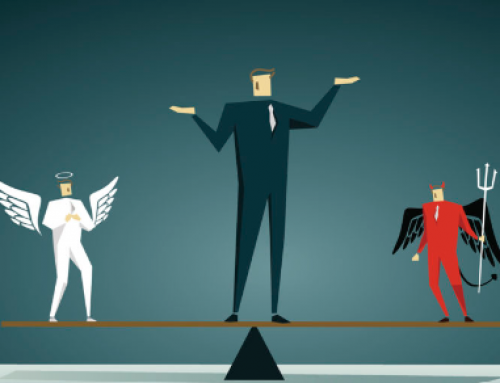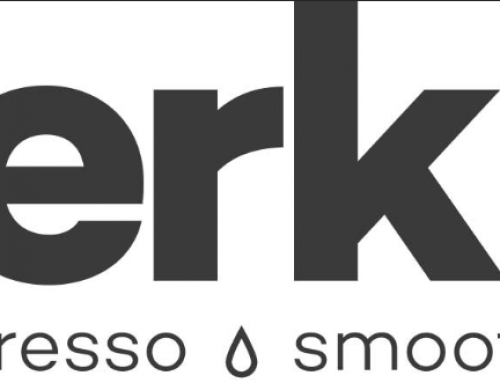In this blog I spoke to Charlie Barnes, this time with a focus on their passion for diversity and inclusion, where this stemmed from, their experience working in a predominantly male environment, and also some challenges the bus industry face in regard to an older work force. We ended the conversation discussing ways cleantech companies can help to attract a more diverse talent pool, leading to a more diverse workforce. Thank you Charlie for sharing your insights and experiences surrounding the topic of diversity and inclusion!
Where has your passion for diversity and inclusion stemmed from?
It’s something I’ve always been vaguely passionate about in theory, but only something I was aware of when it began to affect me. When I was studying A-levels, I looked around at the other students and realised that I was one of the minority, in that I was one of the only women in the room. I was confused as to why there weren’t more women. I found the subjects I was studying really cool, but didn’t know why more people like me weren’t studying them. It never intimidated or bothered me, but it was just that question that I didn’t know the answer to – “why aren’t more women doing this?”.
At university I became a passionate feminist, I read a lot more about equality, society, and all of the challenges that people face, and chose to become a lot more informed about it. I started to see the effects of everything I was reading in my day to day life.
It started with the selfishness of thinking “oh actually this is really affecting me”, but then it went into that wider thought of “who else is it affecting?”, “how is it affecting them?”, and “how can I educate myself about that too?”.
Recently, with the Black Lives Matter movement, I’ve tried to read more around intersectional feminism. There’s that challenge of, as someone that was born a white woman, I definitely have some privileges that so many other people don’t have. Through reading ‘Why I’m no longer talking to white people about race’ (by Reni Eddo-Lodge), I found it fascinating how I could draw so many parallels in my experience of sexism as a woman, to what potentially people of colour are experiencing, while also recognising my own privilege in the experiences I didn’t share. I think it’s important that people are aware of their privileges, but also appreciate that someone such as a cis white man, who’s not had to be aware of his privileges, might struggle to understand the issue. I’d say my passion for Diversity & Inclusion has weaved its way in on that journey.
Working within the bus industry, age became a factor. I was a lot younger than most of my colleagues. It’s a crisis the bus industry is facing – within the next 10-15 years most of the workforce is going to retire. We’re going to be losing so much knowledge and experience. The sector needs to bring more young people in, to make sure the wheels can keep turning and knowledge can be passed on.
One thing I love about the bus industry is that you are catering to everyone, everyone at some point in their life will catch a bus. So not only was I thinking about Diversity and Inclusion from a working perspective and who I want to collaborate with, but how best we can serve our customers. One really important aim the bus industry has is that all of our passengers, no matter how they get around, why they are getting around, and who they are, have a pleasant experience, can access our vehicles, and that they are easy to use. Especially being in London, which is a massively diverse area, there’s an even bigger focus on it.
We had several drivers on central London bus routes that learnt, numerous languages; one of our bus drivers learned the basics of 5 different languages, not fluently but enough to help tourists get around the city. Going above and beyond to help people is an example of our industry at its best, and the sort of stuff that I want to encourage more people to do because it makes such a big difference to the end user when they feel that they are being cared for.
In order for the bus sector, e-mobility sector, energy sector to cater to everyone as we try to reach Net Zero, you need some level of ‘everyone’ to be reflected in the workforce. That’s why I think Diversity & Inclusion is so important in all industries, because of the value it brings, but these industries especially.
I saw that you have worked with Women in Transport – could you tell me about that?
I could talk about them all day – I love it!
It was a significant moment for me when I went to my first Women in Transport event, being surrounded by women and realising it felt different. I felt like I could relax, because I wasn’t having to worry about the same dynamics that I did in the workplace. That was when I personally appreciated how important diversity is for you to feel comfortable and relaxed in an environment. That alone is why I feel Women in Transport is so important.
Through all the fantastic initiatives they run, from webinars, personal development and training sessions to educational sessions, networking, and just getting to meet and work with such a fantastic bunch of really welcoming and diverse people – I’m really pleased that they are catering to everyone in the industry.
Anyone can join, it’s not just for women, we do have some amazing male members that are really passionate about supporting women in the industry which is great to see. In diversity we need to understand how men think, in order to bring them along on the journey, so it’s important to get everyone involved, especially as it affects us all.
I would thoroughly recommend joining to anyone in the transport sector. I think it’s great that there are organisations out there doing things like this and providing that kind of haven for not just feeling good, but also personally developing and building fantastic networks to enhance everyone’s personal and private lives.
I know of women who have turned up to interviews for engineering jobs, saw all men on the interview panel and found it a bit much which put them off the field. That’s what makes me sad – anyone should be able to do whatever they are interested in. Until the most feminine woman ever, feels comfortable going into work in the engineering field, even if it’s in a dirty bus garage, covered in oil – if that’s what she loves, she should feel comfortable, and totally able and welcome to do that. We’re missing out on those peoples’ skills in a sector that desperately needs them.
One of the things I love about UK Power Networks is that I’ve already met several senior women that I look at and think “I want to be like you”. It’s inspiring and confidence building to know there are senior women that have made it, are making it, are accepted and respected by their company to give you that role model to work towards.
Can you tell me about the Diversity and Inclusion Women in Bus Group?
That’s another really fantastic example of something else all of the sectors need to do which is a focussed collaboration on diversity. It’s great if individual businesses do it, but when it becomes a wider, collective push for diversity it’s going to make the whole sector somewhere nice to work. Although you spend a lot of time in your company, you’re never just in a bubble, so the thing I like about the D&I Bus group is that we’re doing the Inclusive Employment Journey (IEJ), and it’s looking to collate best practice from across the transport industry, mostly with a focus on bus and coach, to learn those lessons. We’re really lucky in that so far, some companies have come forward to share not only great successes, but also lessons learned from schemes they’ve done that maybe weren’t as successful as they had hoped. One thing about D&I is that not everyone’s perfect all of the time, it’s about sharing those learnings and talking about what you have yet to do, not just about the amazing things you’ve done and pretending it’s perfect. The IEJ is a really great example – it’s still under development but we’re collating so many examples of how collaborative an industry can be to actually try to make that change which I feel really positive about.
How can we attract a diverse talent pool to a company that hasn’t yet shown much diversity?
I understand that to have women in the business, you’ve got to be able to attract them. I also think the conversation isn’t always as focused as it should be on how to retain that diverse workforce. If you recruit people and they don’t feel welcome and comfortable in the business, they will leave within a year. Then you’ve got to recruit more and it becomes this endless slog to try to maintain your numbers, instead of making sure the people you do have, feel welcome, included, listened to, and valued, because they are the best selling points. If you turn up to an interview and you see diverse employees that are comfortable and have been there several years, that is the best advertisement you can have. Once you get people in, make sure you look after them, respect them, and make sure they feel part of the company, because that’s the best thing you can do.
I think one of the first things is showing that you are very willing to listen and understand. Not just hearing what someone is saying and assume you interpret it correctly, don’t be afraid to ask for clarifications, show that you are really willing to hear them and respond to what they are saying.
The other point is to be very human if candidates ask about diversity at interview. Obviously, every company will say “yes, diversity is important to us”, no one is going to say no to that question. So, it’s not the yes or no that you are looking for, it’s the depth and thought that is put into that answer – how are they catering to support their diverse workforce, what are their initiatives, what are they trying to do that’s realistic that is helping them to become more diverse. As a candidate, you want to hear what they are doing actively to work on their diversity and inclusion, and not to feel that the interviewer is awkward or shying away from that conversation. Do the important work and be genuine about your progress, because that shows. Change doesn’t happen overnight and it’s important to recognise that and be honest about it.
By Emma Beaver


